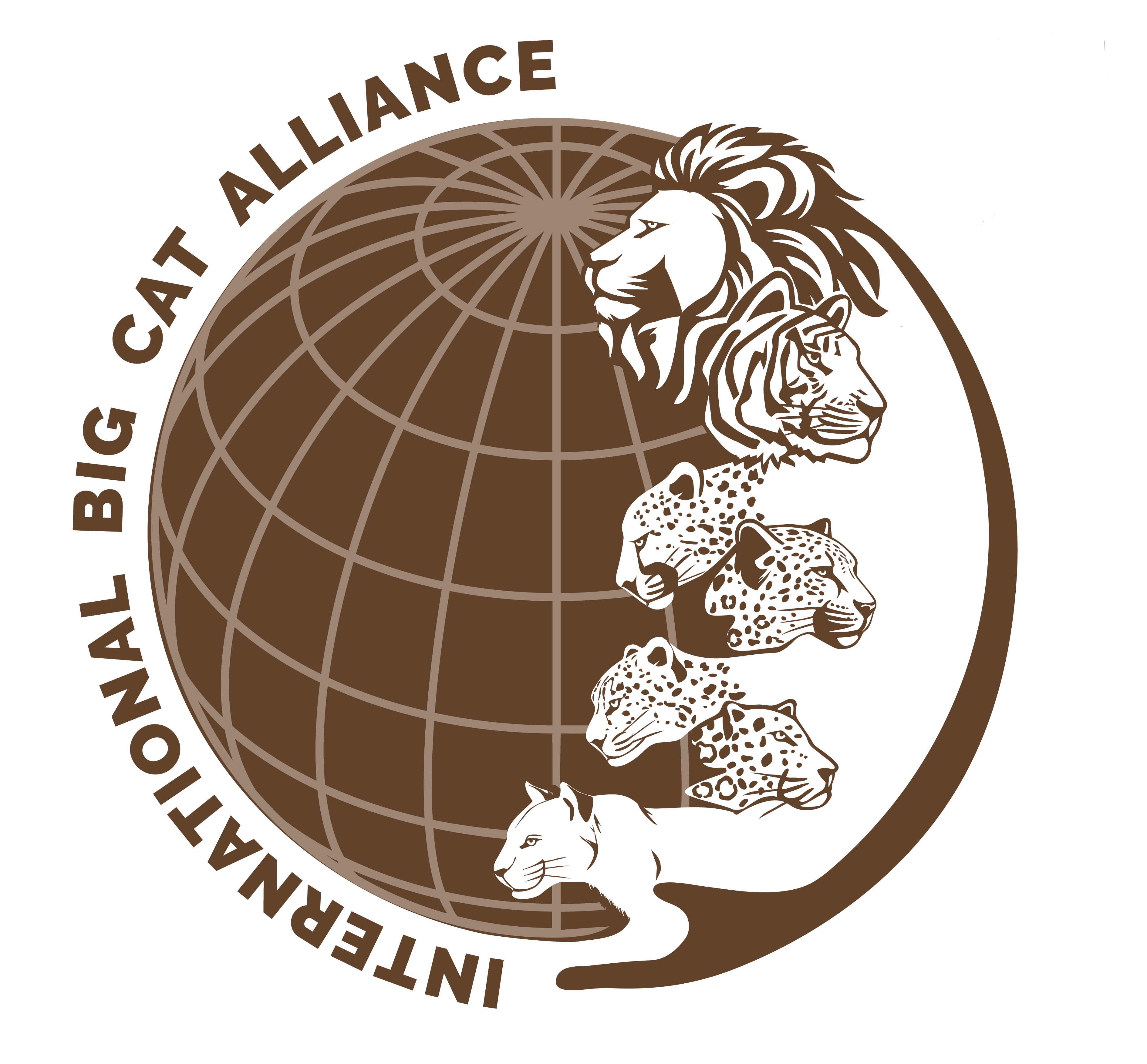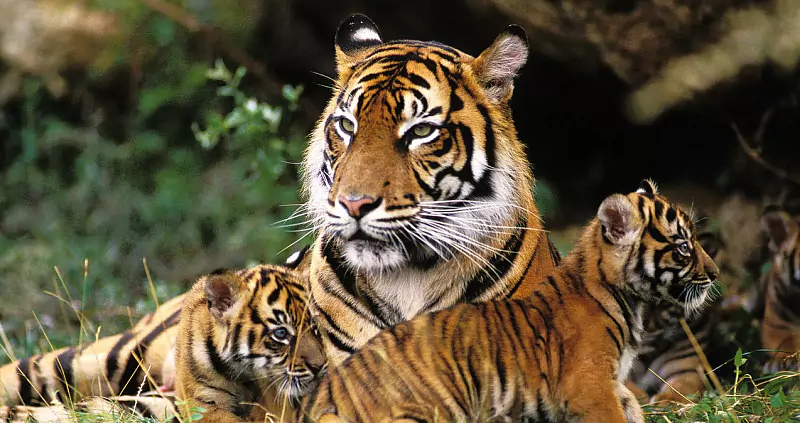International Big Cat Alliance (IBCA) – India’s Conservation Initiative
The International Big Cat Alliance (IBCA) is a global conservation initiative launched by India to protect and conserve seven big cat species across the world. The initiative aims to promote research, conservation strategies, anti-poaching efforts, habitat restoration, and international cooperation for the protection of these species.
Big Cats Covered Under IBCA
The IBCA focuses on the conservation of the following seven big cat species:
| Big Cat Species | Scientific Name | Geographical Distribution |
|---|---|---|
| Tiger | Panthera tigris | India, Russia, China, Nepal, Bangladesh, Indonesia, Bhutan, Myanmar, Malaysia |
| Lion | Panthera leo | Africa, India (Asiatic Lion in Gir Forest) |
| Leopard | Panthera pardus | Africa, Asia, Middle East |
| Snow Leopard | Panthera uncia | Himalayas (India, Nepal, China, Pakistan, Mongolia, Russia) |
| Jaguar | Panthera onca | South & Central America |
| Cheetah | Acinonyx jubatus | Africa, Iran, India (reintroduced in 2022) |
| Puma (Cougar/Mountain Lion) | Puma concolor | North & South America |
The IBCA focuses on habitat preservation, human-wildlife conflict management, and strengthening wildlife crime control efforts globally.
Formation & Recent Developments
Genesis of IBCA
- Prime Minister Narendra Modi first proposed the idea for IBCA on April 9, 2023, during the 50th anniversary of Project Tiger in Mysuru, Karnataka.
- It was conceptualized as a global platform to bring together stakeholders from various countries to enhance conservation measures for big cats.
India’s Formal Participation & Developments
- India formally joined IBCA in September 2024, demonstrating its commitment to big cat conservation.
- In February 2024, the Union Cabinet approved the establishment of IBCA headquarters in India and allocated a budget of ₹150 crore for the period 2023-2028.
- The IBCA is expected to be a multi-country, multi-stakeholder initiative, bringing together governments, wildlife organizations, and conservationists worldwide.
Objectives of IBCA
- Global Conservation of Big Cats
- To develop scientific conservation strategies for big cats and their habitats.
- Protection of key biodiversity areas and ecological corridors that support big cat populations.
- Habitat Preservation & Restoration
- Mapping critical habitats and corridors essential for big cat movement.
- Promoting eco-friendly development to prevent habitat destruction.
- Strengthening Anti-Poaching Efforts & Wildlife Crime Control
- Strengthening law enforcement mechanisms to tackle wildlife crime and poaching.
- Encouraging real-time tracking and surveillance technologies, such as drones and AI-driven monitoring.
- International Collaboration & Policy Advocacy
- Establishing a global knowledge-sharing platform to coordinate conservation efforts.
- Strengthening transboundary conservation efforts in countries that share big cat populations (e.g., India-Nepal for tigers).
- Community Involvement & Livelihood Support
- Encouraging local community participation in conservation projects.
- Providing alternative livelihood options to reduce human dependence on forests.
- Research, Education, and Awareness
- Promoting scientific research on big cat behavior, genetics, and health.
- Raising public awareness about the ecological importance of big cats.
Why is IBCA Important?
- Conservation of Big Cat Species
- Big cat populations have been declining due to habitat loss, poaching, and climate change.
- Tigers, cheetahs, and snow leopards are endangered and require urgent conservation efforts.
- India's Leadership in Global Wildlife Conservation
- India is home to five out of the seven big cat species, making it a natural leader in big cat conservation.
- India has successfully run programs like Project Tiger, Project Lion, and Project Cheetah.
- Enhancing Transboundary Conservation Efforts
- Many big cats cross international borders (e.g., tigers in India & Nepal, snow leopards in India & China).
- IBCA can facilitate coordinated conservation strategies among different countries.
- Strengthening Global Funding & Research
- Encourages international funding and collaboration for conservation research.
- Helps in technology transfer (e.g., advanced tracking devices and conservation drones).

Structure of IBCA
| Component | Details |
|---|---|
| Headquarters | India |
| Initial Budget | ₹150 crore (2023-2028) |
| Member Countries | Open to 97 big cat range countries |
| Key Partners | Governments, NGOs, Conservationists, Wildlife Scientists |
| Focus Areas | Conservation, Policy Advocacy, Research & Education |
India’s Conservation Programs & Their Link to IBCA
- Project Tiger (1973)
- Objective: Protect tigers and their habitats.
- Success: Increased tiger population from 1,411 (2006) to 3,167 (2022).
- IBCA Link: Shares India's expertise in tiger conservation
- Project Lion (2020)
- Objective: Protect Asiatic Lions in Gir Forest, Gujarat.
- IBCA Link: Encourages international collaboration in lion conservation.
- Project Cheetah (2022)
- Objective: Reintroduce cheetahs in India (extinct since 1952).
- Success: 20 cheetahs relocated from Namibia & South Africa to Kuno National Park, MP.
- IBCA Link: Strengthens global cheetah conservation efforts.
- Project Snow Leopard (2009)
- Objective: Conserve snow leopards in the Himalayas.
- IBCA Link: Enhances transboundary snow leopard conservation.
Challenges in Big Cat Conservation
- Habitat Loss & Fragmentation
- Deforestation, urbanization, and infrastructure projects reduce big cat habitats.
- Human settlements disturb natural prey bases.
- Poaching & Illegal Wildlife Trade
- Demand for tiger bones, leopard skin, and cheetah cubs in the illegal wildlife market.
- Poaching remains a major threat to big cat populations worldwide.
- Climate Change
- Rising temperatures affect prey availability and alter big cat habitats.
- Snow leopards are losing habitats due to glacier melting.
- Human-Wildlife Conflict
- Big cats often attack livestock, leading to retaliatory killings by villagers.
- Lack of proper compensation mechanisms increases conflicts.
- Funding & Policy Challenges
- Many developing countries lack resources for big cat conservation.
- Weak law enforcement against poaching and habitat destruction.
Strengthening IBCA’s Impact
- Expanding Protected Areas
- Creating new national parks & wildlife sanctuaries for big cats.
- Strengthening wildlife corridors to connect fragmented habitats.
- Strengthening Law Enforcement
- Using AI-based surveillance, camera traps, and drones for anti-poaching.
- Stronger penalties for wildlife crimes under Wildlife Protection Act, 1972.
- Community Participation & Sustainable Eco-Tourism
- Involving local communities in conservation efforts.
- Developing eco-tourism models that benefit both conservation and local livelihoods.
The International Big Cat Alliance (IBCA) is a landmark initiative that enhances India’s global leadership in wildlife conservation.By fostering international collaboration, strengthening habitat protection, and addressing poaching, IBCA can significantly contribute to the long-term survival of big cats worldwide.













